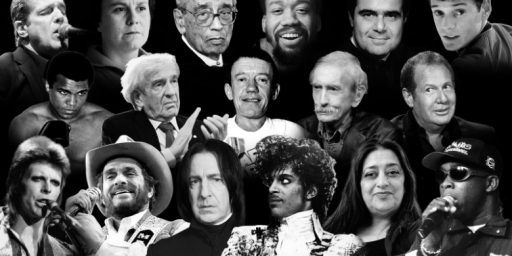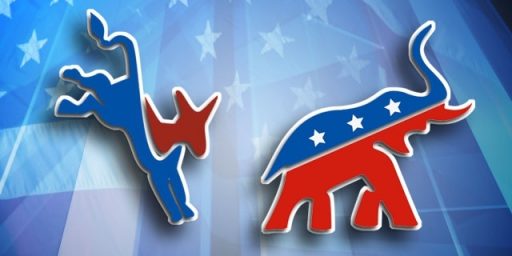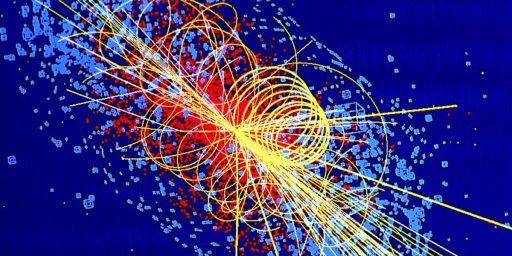The Power of the Presidency
The U. S. presidency is by design a weak office. In the United States the power of the presidency is prescribed by law, circumscribed by custom, encumbered in bureaucracy, and subject to the limits imposed by the laws of physics, economics, and politics which, in the political sphere, are as immutable as the laws of physics and more so than the laws of economics.
As much as any of these the power of the presidency is limited by the qualities of character that carry one to the presidency. We no longer elect patricians like Franklin (or Theodore) Roosevelt or great war leaders like Jackson, Grant, or Eisenhower to the presidency. I do not know why this is. I only know that it is. We have never elected a leader of the Korean or Viet Nam Wars to the presidency and we never will. At this point it appears extremely doubtful that we’ll elect a leader of the Gulf War or the war in Iraq or Afghanistan to the presidency.
We don’t elect business leaders to the presidency, either (and, increasingly, business leaders are neither entrepeneurs nor real leaders but clever rent-seekers).
We do elect celebrities, apparatchiks, the politically connected, and the politically canny. Increasingly, we elect people who perform reasonably on television.
We don’t elect people who are inclined to lead or have the experience of leading. And that lack of the virtue of leadership is an enormous limitation on the power of the president.
I make no excuses for the failures of past or present presidents. For leadership we must look to the Congress—no more inclined to or experienced at leadership than the president. And, even more frighteningly, to ourselves.
Cross-posted at The Glittering Eye.






Wrong. A “patrician” is someone who is a member of the aristocracy or a hereditary ruling class. To the extent that aristocracy exists in the US, both Bushes can firmly be considered “patrician.”
Wrong again. Bush, Jr. served honorably in the military during Viet Nam.
I don’t know how you define “leader,” but clearly Bush’s gubernatorial and presidential campaigns highlighted his MBA background and experience as a businessman.
We no longer elect patricians like Franklin (or Theodore) Roosevelt
No, we elect patricians like Bush 41 and Bush 43.
As for great war leaders, I’m sure we’d be happy to elect one — but whom? There *were* no “great war leaders” of Korea and Vietnam, with the marginal exception of MacArthur, whose defects were evident. Schwartzkopf and Powell were the only post-Vietnam contenders for that title; S. seems never to have been interested, and P. blew it under Bush 43.
Nor do I understand the contention that Bush 43 is any kind of TV performer. Rather, he was coddled by a news media determined to favor him over his Democratic competitors (see Bob Somersby, passim, on the media’s “anyone but Gore” campaign).
Congress has declined as its members became term-round fundraisers, particularly after the popular election of senators (the worst mistake of the 20th century, amendment-wise). The presidency, like the SCOTUS, has grown to fill the vacuum.
I distinguish between aristocrats and patricians. The Bushes are certainly the former. I don’t think they’re the latter.
Was Bush 41 elected as an aristocrat or as an apparatchik? I think as the latter.
I’d characterize Bush 43’s TV performance as adequate but I think his election in 2000 is best explained under the category “politically connected&3148;.
I distinguish between aristocrats and patricians. The Bushes are certainly the former. I don’t think they’re the latter.
Would you care to define your terms?
Do I understand your logic here that FDR’s strong and popular executive legacy is relatively more acceptable because he is a “patrician” vs. for example Reagan who also has a relatively popular legacy yet was merely a “celebrity”?
Anderson, there’s a distinct difference between the two. I’ve been meaning to write about the American aristocracy but have never gotten around to it (I grew up around it without remotely being a part of it). The handiest definition of aristocracy in this country I’ve ever heard is that you’re a member of the aristocracy when it’s impossible for you to screw up so badly you’ll be allowed to fail. I think that characterizes GWB pretty well, for example.
Here’s GWB’s childhood home. Here’s FDR’s. Those I would characterize as “patricians” are reared in an environment in which they are expected and accustomed to giving direction from childhood.
Was George H. W. Bush reared in such an environment? I wouldn’t be surprised. But he surrendered most of that when he left New England, using his dad’s political connections to propel himself into the apparatus of Republican politics, he further installed himself into the U. S. foreign policy apparatus. That’s why I think, in his case, apparatchik outweighs patrician.
Do we have genuine patricians nowadays? Possibly. I’m pretty far from that world now. But times have changed a lot and things are much more egalitarian so it’s possible that being born to command is long gone.
DaveD, I think there are lots of reasons that FDR’s legacy is hallowed. That’s one of them.
Oh, Triumph, serving in the military doesn’t make one a great war leader. Eisenhower was a great war leader. George H. W. Bush was a war hero. Different.
In regards to childhood home comparison of FDR and GWB–keep in mind that GWB’s grandfather was a US Senator, and wealthy. Not exactly the same situation as the Roosevelts, but less different than the photos would imply.
Both the Roosevelts and the Bushes share that belief in public service, a type of noblesse oblige, so I am not sure what the actual distinction is.
And I started to leave another comment, but it turned into a lengthy post instead.
dave schuler;and lots of reasons why it is despised!
“For leadership we must look to the Congress—no more inclined to or experienced at leadership than the president. And, even more frighteningly, to ourselves.”
And why is it a frightening thing if I look to you or me for leadership? Leadership is where you find it. One of the characteristics of government at all levels is the lack of leadership found therein.